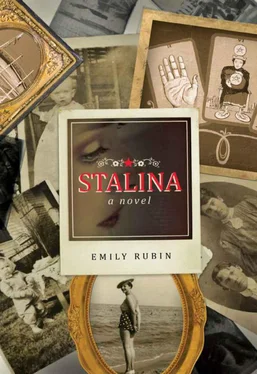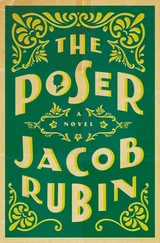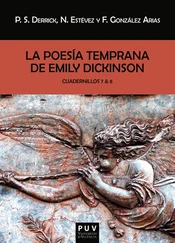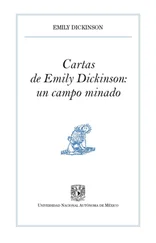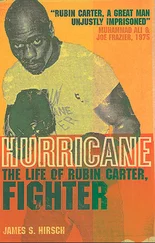Brutus, I do observe you now of late.
I have not from your eyes that gentleness
And show of love as I was wont to have.
You bear too stubborn and too strange a hand
Over your friend that loves you.
* * *
“Good evening, Leonid,” Maxim had said that evening as he came up the steps. “Reading your favorite play, I see.”
My father did not answer.
“Hello, Maxim, would you like a glass of tea?” my mother asked him.
“Tea, thank you, Sophia,” Maxim said to my mother.
My father said nothing, got up from his chair, and went into the house. Amalia had put down her last card, winning the hand. “Let’s play another,” she said.
We played, but I was distracted and lost the next three hands. I could hear my father pacing and my mother rattling pans in the kitchen. Maxim sat on the steps and smoked cigarette after cigarette. The smoke filled the porch. My mother stepped through the smoke cloud with Maxim’s tea and a piece of pie. She pulled the cigarette from his mouth so he could eat, and he watched as she drew the smoke into her lungs and released it around him. He devoured the pie but never took his eyes off her. They walked off the porch into the evening, sharing another cigarette. Amalia won another hand. My father stayed inside. My mother returned alone. In the meantime, I had finally won a hand.
“You girls should be in bed by now,” she said.
“Stalina finally won. One more hand so we can tie,” Amalia pleaded with my mother.
“You’re a good friend, Amalia. Now go to bed, girls,” my mother said.
“Where’s your father?” Amalia asked.
“Asleep in his chair,” I told her.
My mother went inside.
“Girls, come in now. I’ll let you skip your baths if you go right up to bed.”
We left our playing cards and went upstairs. In the living room my father was unconscious in his chair with his teacup knocked over in his lap. There was a stain on his pants where the liquid had soaked into the worsted wool. My mother was standing in the doorway to the kitchen, smoking another cigarette. I could not see her face in the shadows.
When we got upstairs, Amalia asked, “Your parents don’t touch anymore, do they?”
I could not remember the last time I saw them touch each other.
“They don’t need to touch,” I told her.
“Everyone needs to touch,” she said.
* * *
I finished packing and went downstairs. Amalia was in the basement with Alexi. They were having an argument. I picked up the phone to call Olga in Russia, but the smell of cigarettes and gardenia perfume on the receiver made me sick to my stomach. Bacco was waiting in a car to take me back to the motel. My new home.
* * *
I reached Olga from the office phone on the first try. She had been to the rooming house earlier in the day and learned the details of my mother’s passing from one of her roommates.
“I hope you don’t mind, but I told them I was you,” she said.
“Who did you speak with?”
“Ludmilla was her name. She said she thought I was shorter and had darker hair. I told her I had only recently become a blond and was wearing heels.”
“I remember Ludmilla. She had the cot across from my mother, and her son used to bring her chocolates.”
“Is he married?” Olga was constantly on the lookout for men with connections. She continued, “Chocolates at the salon would be nice for treats.”
“Ludmilla never had the heart to tell her son that the chocolates gave her indigestion. She gave them away to the nurses and kitchen staff. My mother used to complain that Ludmilla got special attention because of the chocolates. She told me, ‘They gave her an extra piece of chicken the other day. Maybe you could do something for me, Stalina?’ That was when I gave her the toilet tissue and gifted the brassieres to the nurse.”
Olga explained, “Ludmilla told me that evening noodle soup with fish balls was served in the commissary for dinner. When the bowl was placed in front of your mother, she picked up one of the balls with her spoon, flung it against the wall, and screamed, ‘Capitalist pigs! They hoard the caviar for themselves and let us eat this slop!’ The nurses tried to calm her down with a cup of tea. She apologized for the bad behavior and assured them she was actually fond of fish balls, but had been possessed by a bad memory.”
I told Olga, “Mother must have been thinking of the time when Nadia’s parents were giving a party and served caviar. She left the party and went behind their house with a full mouth. I ran after her, thinking she was ill. She spit out the caviar and said, ‘I feel like I just sucked the cock of a KGB operative.’ Nadia’s dog, Trala, came out and started barking at us. ‘Are you the house informant?’ she said and spit at the yapping poodle. ‘That would figure.’ ‘Mother, it’s just a dog,’ I said. Then a stray cat with a split ear crawled out from under the house and began to lick the caviar from the leaves of the hydrangea where it had landed. We went back to the party, leaving the cat picking at the bits that got caught between her claws. ‘That must be Ezhov; he was known for licking Stalin’s ass,’ Mother said about the cat. ‘Mother, it’s just a stray cat,’ I assured her.”
Olga described how she’d been told. Mother’s roommates had returned from dinner only to find her standing at the edge of her bed facing the picture of my father—the one with the shovel. With red lipstick she had scrawled these lines on the starched white bedsheet:
The last time we were
Together we watched as the ice cream
Slowly dripped onto our daughter’s finely manicured hands.
I don’t care for chocolate, but it is ecstasy for her.
The hysteria of you is a charm
Not mine alone.
I cannot protect you from the Sun,
But you can love us all.
This was another poem of my father’s we found amongst his things. According to Ludmilla, the roommates stood by their respective cots, chanted the words, and were soon dancing around the room swinging in one another’s arms.
Frieda, who has one leg shorter than the other, got up on her cot and challenged the room, “In what year did Leonid write that poem?”
Many knew my father’s work; I made sure his poems were passed among other poets and friends.
“If I know, do I win something?” asked Talia, the shy one who had long gray braids.
“It was like we were children again,” Ludmilla told Olga. “Then the nurses came and made everyone go to bed. Your mother refused to have the sheet changed, so with the words draped over her body, she went to sleep, fully dressed.”
Olga went on to explain how the rest of the night unfolded. Lights-out was ten o’clock. Around three in the morning, Ludmilla heard my mother talking. She had taken the photograph of my father off the wall, laid it next to her on the pillow, and was whispering to it.
“Is everything all right?” Ludmilla asked my mother.
There was no answer, but my mother continued talking to the photograph. Ludmilla heard her crying and was about to get up when my mother sat up and reached her arms out as if to embrace someone. Her face was filled with a big broad smile, and then her eyes closed. She fell back onto the bed, barely making a sound. Ludmilla waited for my mother to move, but she remained still.
“Ludmilla said it was as if someone had come to greet her,” Olga said.
I wonder who it was. Maxim? My father? It was a relief to hear she was happy about whoever or whatever had taken her to the other side.
“Could it be that you get to spend eternity with the person you truly love?” I asked Olga.
Читать дальше
